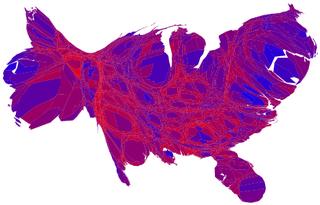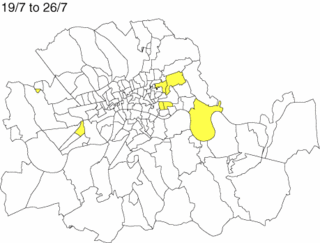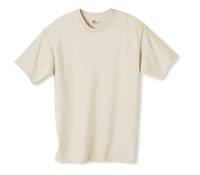What little I know I like. I admit I'm completely new to this, so please take everything I say with a grain of salt. Nevertheless, learning about GIS is like learning about the Internet for the first time and thinking, "Wow, that's really cool. Why didn't I know about it sooner?"
It's more than just maps and pretty pictures, geographic information science (or systems, depending on who you talk to) puts spatial information to use.
Take the 2004 election results. (Yes, Balloon Pirate, you inspired me.)
It's not just red and blue states, it's
this.

Want something more relevant? GIS makes it possible to do live tracking of hurricanes across the Gulf coast (photo from
ESRI) and enables rescue workers to work accurately and efficiently. Remember how 9/11 knocked out the emergency routing information for New York City? GIS put it back together again.

Department stores use it to track customers, historians use it to discuss changes in segregation policies, and people in forestry use it to track everything from logging to endangered species. The first documented use of what would become GIS was in 1854 when John Snow mapped a
cholera epidemic and tracked it to local water supplies.

So like I said, "Wow this is really cool. Why didn't I know about it sooner?"









